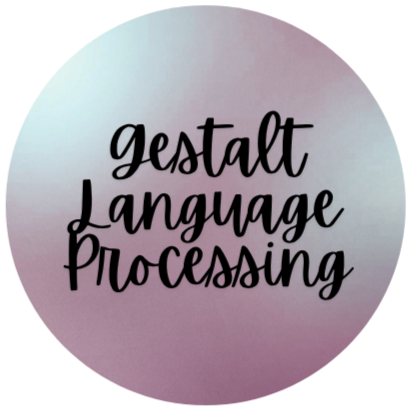Welcome!
I’m glad you’re here at gestaltlanguageprocessing.org! The goal of this website is to describe the research relating to Gestalt Language Processing (or Gestalt Language Development) and Natural Language Acquisition. These approaches have recently gained in popularity due to their alignment with neurodiversity-affirming values; however, their popularity has also led to a lot of polarization on social media.
I created the Instagram account @language_processing to try to bridge multiple perspectives on gestalt language processing and natural language acquisition. I also wanted to have the same information in the form of a website since many people prefer to get information this way. I joke that I use Instagram like it’s Wordpress, so now I’ll live up to that and republish some of my Instagram content as blog posts.
I think it’s normal and healthy that there is disagreement, and even debate, about popular approaches used in any field. Evidence-based practice requires us to stay current with the research evidence, and accurately represent the findings and gaps in our knowledge. Clinicians use our clinical expertise to adapt research-aligned approaches to the specific needs and preferences of the client. We center patient values through informed consent and shared decision-making: When a patient and their family is fully informed of the risks and benefits of multiple options, they can choose the option that works best for them. They can work with their clinician to create a plan that is aligned with their family’s needs and values.
It’s natural that clinicians won’t all have the same opinions about the best course of action in the therapy room. We all have different strengths. My hope is that we can communicate better with each other and have productive conversations. Debates about NLA and GLP often turn into very polarized arguments between a “pro” and “anti” camp that don’t go anywhere. Instead of taking a “stance” on NLA and GLP, I have tried to unpack the debates into specific claims I’ve seen made clinicians who use NLA. For each of those claims, we can ask: is this claim unique to NLA/GLP? What exactly do we mean when we say this? What is the evidence for this claim?
Informed consent also requires that clinicians accurately represent multiple options to families. To aid in that, I have created a non-exhaustive list of alternative assessment and treatment approaches that may be appropriate for children who use echolalia, provide flexibility for clinicians to implement them in an individualized and neurodiversity-affirming way, and are aligned with evidence.
Finally, everyone on all sides seems to agree that more research is needed. In the Needed Research section, I try to get specific about exactly what studies are needed to add clarity to the discussions about Natural Language Acquisition and Gestalt Language Processing.
Thanks for reading, and I hope you’ll let me know what you think of this website! You can contact me at support@gestaltlanguageprocessing.org, or leave a comment on any blog post.
